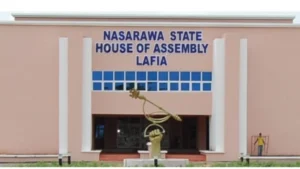The Federal Government of Nigeria has decided to stop fuel tankers from driving at night. This new rule comes from the Nigerian Midstream and Downstream Petroleum Regulatory Authority (NMDPRA).
Farouk Ahmed, the head of NMDPRA, spoke about this rule in Lagos during a safety program for fuel tanker drivers. The event was organized with help from several groups, including the Nigeria Union of Petroleum and Natural Gas Workers (NUPENG), the National Association of Road Transport Owners (NARTO), and the Federal Road Safety Corps (FRSC).
Ahmed, through Dr. Mustapha Lamorde, said that fuel tankers should only move between 6 in the morning and 6 in the evening. No tanker is allowed to drive at night. Anyone who breaks this rule will be punished. This rule is to stop accidents and explosions involving fuel tankers, which have caused many deaths.
The government is also working to reduce how much fuel trucks carry. Right now, trucks are banned from carrying 60,000 liters or more. By the end of 2025, trucks will only be allowed to carry up to 45,000 liters. A special committee with 13 groups was formed to help make these safety rules work.
Since March 1, the committee has been checking trucks and drivers to make sure they follow safety rules. Trucks will also need to have special colors and labels so they are easy to recognize. Fuel tankers must install anti-spill kits to help stop fuel leaks during accidents.
Comrade Gbolahan, a leader of the tanker drivers in Lagos, warned drivers not to overload their trucks or drive carelessly. He also reminded drivers to take care of their health and use their health insurance if they feel sick.
Dr. Kassim Ibrahim, from NARTO, praised the government for focusing on driver safety. He said this is the first time a government has taken such strong steps. Ibrahim told drivers to avoid dangerous habits like drinking alcohol before driving and driving too fast. He said driving slowly helps you reach your destination safely.
The Federal Road Safety Corps also spoke to drivers about being careful on the road. They said a good driver is one who drives safely and reaches their destination without accidents. Most crashes happen because of human mistakes, so drivers must always be careful and responsible.
Finally, the FRSC asked that all trucks have speed-limiting devices. They told drivers to obey speed limits and be patient because patience can save lives.
With these new rules, the government hopes to make Nigerian roads safer and prevent more accidents involving fuel tankers.







